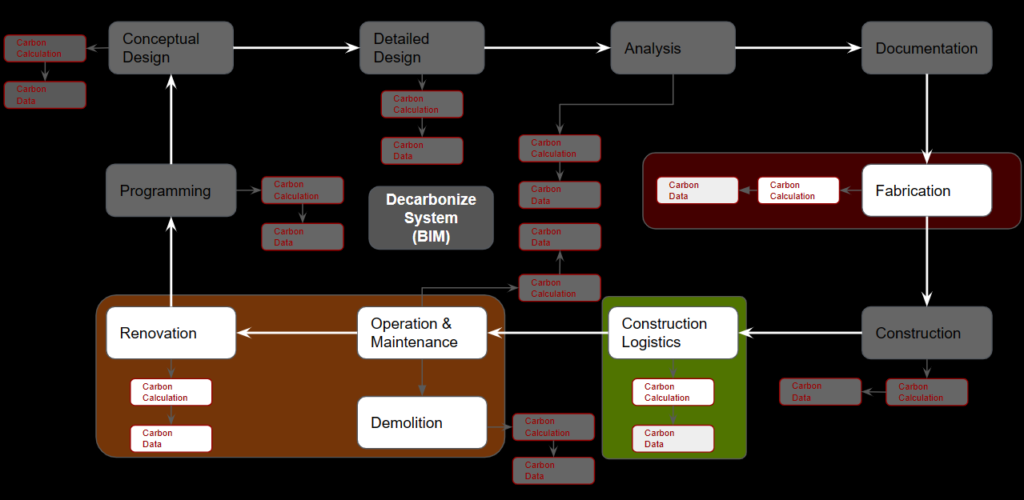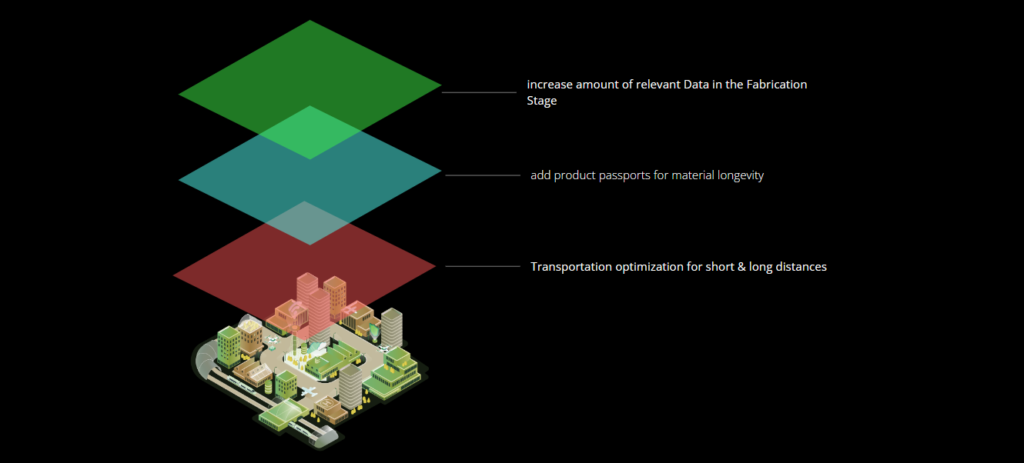Revolutionizing Construction: The Oura Project’s Path to Sustainability through Digital Solutions
Introduction
The construction industry stands at a critical crossroads in the face of escalating global climate challenges. As a significant contributor to worldwide greenhouse gas emissions, it is imperative for this sector to undergo a transformation. The Oura Project emerges as a pioneering initiative, aiming to revolutionize the building process at crucial stages to foster longevity, accountability, and carbon reduction. This comprehensive blog post explores the pressing problems the project addresses, introduces its innovative solutions, and envisions a future where construction contributes positively to our planet.
Challenges in Construction
- Product Passports and Material Traceability: The industry faces difficulties in tracing material origins and identifying circular opportunities for reuse and recycling, which is vital for reducing waste and emissions.
- Dependency on New Fabrication: A heavy reliance on new materials not only depletes natural resources but also significantly increases carbon emissions associated with production and transportation.
- Inefficient Transportation: Material transportation accounts for 16% of construction-related CO2 emissions, with traditional logistics methods contributing to unnecessary environmental impact.
The Oura Project: Three Stages of Transformation

The Oura Project introduces a three-pronged approach to tackle these challenges head-on, leveraging technology and innovative thinking to create a digital ecosystem that champions sustainability.
1. Increasing Relevant Data in the Fabrication Stage
The first stage focuses on enhancing the amount of relevant data available during the fabrication of building materials. By implementing advanced tracking and data analysis techniques, the project aims to optimize material production processes, reduce waste, and significantly cut down on carbon emissions. This approach not only makes the fabrication stage more efficient but also lays the groundwork for a more sustainable construction industry.
2. Implementing Product Passports for Material Longevity
The second stage introduces the concept of product passports. These digital documents provide a comprehensive history of materials, including their origin, composition, and previous uses, thereby enabling better decision-making regarding their reuse and recycling. Product passports are a key component in extending the lifespan of building materials, promoting a circular economy, and ensuring materials’ longevity contributes to reducing the construction sector’s environmental footprint.
3. Optimizing Transportation for Short and Long Distances
The final stage addresses the inefficiencies in material transportation. The Oura Project proposes an integrated logistics solution that optimizes transportation routes for both short and long distances. By prioritizing sustainable modes of transport and employing advanced algorithms to combine cargo loads efficiently, this solution aims to significantly reduce CO2 emissions associated with moving materials. The introduction of autonomous, modular vehicles for urban settings further exemplifies the project’s commitment to innovative, environmentally friendly transport solutions.

Conclusion
The Oura Project represents a bold step forward in redefining the construction industry for the betterment of our environment. By tackling key issues such as material traceability, dependence on new fabrication, and transportation inefficiencies, it sets a new standard for sustainability. Through its three stages of transformation—enhancing data in the fabrication stage, implementing product passports for material longevity, and optimizing transportation—the project creates a digital ecosystem that promotes longevity, accountability, and carbon reduction. As we look to the future, the Oura Project not only offers a blueprint for sustainable construction but also inspires a shift towards a circular economy, where every material and process is designed with the well-being of our planet in mind.

